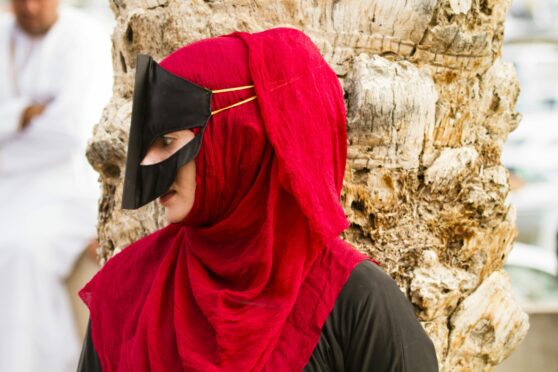
Hundreds of human trafficking victims in Oman must be protected as the UK seeks to forge closer military ties with the Gulf state, according to campaigners.
Do Bold, an organisation that works to assist and repatriate migrant workers, said many women were held in domestic servitude as fears mount over the nation’s human rights record.
They called on the UK Government to help repatriate 468 women from Sierra Leone trapped in abusive households, subjected to physical and sexual violence with no access to justice or route home.
Ekaterina Porras Sivolobova, director of Do Bold, said: “Just as businesses are expected to carry out human rights due diligence and assess the risks of their business practices on a community, so should states.
“The UK’s domestic commitment to human rights, human dignity, freedom, equality and rule of law, must also be reflected throughout its engagements with the international community.
“Human rights principles and standards in any UK bilateral cooperation must be applied including zero tolerance on all forms of modern slavery.”
Activists found that many of the women had been tricked by recruiters. Some claimed they had been promised jobs in restaurants and hotels in Europe or the US, while others said they believed they had applied for scholarships to study.
They said they were then trafficked into domestic work when they arrived in Oman.
Sivolobova added: “We identified 468 women from Sierra Leone trafficked for domestic servitude. Despite this information, there has been no effort to remediate the women’s situation nor to investigate to hold those responsible accountable.
“The majority of these women remain in the country, unable to return home due to Oman’s regulations.
“If the UK will enter into this cooperation with Oman, we recommend that the UK takes its international obligations into account and helps with the remediation of these women and supports organisations such as Do Bold who are improving human rights on the ground.
“It is only through this that the UK’s efforts to uphold international standards will show tangible and measurable improvement in the situation.”
Under the British Army’s “Future Soldier” strategy, the Royal Highland Fusiliers are among the first soldiers to deploy to Oman for unit training, partnered exercises, and to provide a “persistent engagement force”.
The move comes after the US Government raised concerns over significant human rights issues there.
The State Department’s report on human rights, published in 2021, revealed significant concerns in the country based on credible reports of arbitrary arrest and detention; outlawing of homosexuality; restrictions on the internet, free expression and media; interference with the rights of peaceful assembly and freedom of association; serious restrictions on political participation and the exploitation of foreign migrants.
The Army plans to have a more enduring presence overseas. Through three hubs in Germany, Oman and Kenya, it aims to “extend our influence and support the prosperity agenda”.
The Army will concentrate the training of its heavy war-fighting units of tanks and infantry in Oman.
The Sultanate of Oman is a hereditary monarchy ruled since 2020 by Sultan Haitham bin Tariq Al Said.
He enacts laws through royal decree although there is a parliament with elected representatives.
The Ministry of Defence said: “The UK and Oman have many shared interests and ambitions across political, economic, social and security matters.
“We rely on our partners in the Middle East, including Oman, for the safety and security of the UK and our citizens.
“Further investment in Oman and increased deployments to the country and the region demonstrate our long-term commitment to the Gulf’s stability and prosperity while protecting our interests in tackling the upstream drivers of terrorism.”

Enjoy the convenience of having The Sunday Post delivered as a digital ePaper straight to your smartphone, tablet or computer.
Subscribe for only £5.49 a month and enjoy all the benefits of the printed paper as a digital replica.
Subscribe